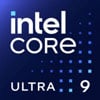
Apple M2 Pro (10-CPU 16-GPU) Benchmark, Test and specs
Last updated:
The Apple M2 Pro (10-CPU 16-GPU) has 10 cores with 10 threads and is based on the 2. gen of the Apple M series series. The processor was released in Q1/2023. The Apple M2 Pro (10-CPU 16-GPU) scores 1,874 points in the Geekbench 5 single-core benchmark. In the Geekbench 5 multi-core benchmark, the result is 12,224 points.

| Name: | Apple M2 Pro (10-CPU 16-GPU) |
|---|---|
| Family: | Apple M series (23) |
| CPU group: | Apple M2 (8) |
| Architecture: | M2 |
| Segment: | Mobile |
| Generation: | 2 |
| Predecessor: | Apple M1 Pro (10-CPU 14-GPU) |
| Successor: | Apple M3 Pro (11-CPU 14-GPU) |
CPU Cores and Base Frequency
The Apple M2 Pro (10-CPU 16-GPU) has 10 CPU cores and can calculate 10 threads in parallel. The clock frequency of the Apple M2 Pro (10-CPU 16-GPU) is 0.66 GHz (3.50 GHz). The number of CPU cores greatly affects the speed of the processor and is an important performance indicator.
| CPU Cores / Threads: | 10 / 10 |
|---|---|
| Core architecture: | hybrid (big.LITTLE) |
| A-Core: | 6x Avalanche |
| B-Core: | 4x Blizzard |
| Hyperthreading / SMT: | No |
|---|---|
| Overclocking: | No |
| A-Core Frequency: | 0.66 GHz (3.50 GHz) |
| B-Core Frequency: | 0.60 GHz (2.42 GHz) |
Artificial Intelligence and Machine Learning
Processors with the support of artificial intelligence (AI) and machine learning (ML) can process many calculations, especially audio, image and video processing, much faster than classic processors. Algorithms for ML improve their performance the more data they have collected via software. ML tasks can be processed up to 10,000 times faster than with a classic processor.
| AI hardware: | Apple Neural Engine |
|---|---|
| AI specifications: | 16 Neural cores @ 15.8 TOPS |
Internal Graphics
The Apple M2 Pro (10-CPU 16-GPU) has integrated graphics, called iGPU for short. Specifically, the Apple M2 Pro (10-CPU 16-GPU) uses the Apple M2 Pro (16 Core), which has 2048 texture shaders and 256 execution units. The iGPU uses the system's main memory as graphics memory and sits on the processor's die.
| GPU name: | Apple M2 Pro (16 Core) |
|---|---|
| GPU frequency: | 0.45 GHz |
| GPU (Turbo): | 1.40 GHz |
| Compute units: | 256 |
| Shader: | 2048 |
| Hardware Raytracing: | No |
| Release date: | Q1/2023 |
| Max. displays: | 3 |
|---|---|
| Generation: | 2 |
| Direct X: | -- |
| Technology: | 5 nm |
| Max. GPU Memory: | 32 GB |
| Frame Generation: | No |
Hardware codec support
A photo or video codec that is accelerated in hardware can greatly accelerate the working speed of a processor and extend the battery life of notebooks or smartphones when playing videos.
| h265 / HEVC (8 bit): | Decode / Encode |
|---|---|
| h265 / HEVC (10 bit): | Decode / Encode |
| h264: | Decode / Encode |
| VP8: | Decode |
| VP9: | Decode / Encode |
| AV1: | No |
|---|---|
| AVC: | Decode |
| VC-1: | Decode |
| JPEG: | Decode / Encode |
Memory & PCIeThe processor can use up to 32 GB memory in 2 (Dual Channel) memory channels. The maximum memory bandwidth is 102.4 GB/s. The memory type as well as the amount of memory can greatly affect the speed of the system. |
|
| Memory type: | Memory bandwidth: |
|---|---|
| LPDDR5-6400 | 102.4 GB/s |
| Max. Memory: | 32 GB |
| Memory channels: | 2 (Dual Channel) |
| ECC: | No |
| PCIe: | 4.0 |
| PCIe Bandwidth: | -- |
Thermal ManagementThe thermal design power (TDP for short) of the processor is 30 W. The TDP specifies the necessary cooling solution that is required to cool the processor sufficiently. The TDP usually gives a rough idea of the actual power consumption of the CPU. |
|
|---|---|
| TDP (PL1 / PBP): | 30 W |
| TDP (PL2): | -- |
| TDP up: | -- |
| TDP down: | -- |
| Tjunction max.: | 100 °C |
Technical details
The Apple M2 Pro (10-CPU 16-GPU) is made in 5 nm. The smaller the manufacturing process of a CPU, the more modern and energy-efficient it is. Overall, the processor has 28.00 MB cache. A large cache can greatly speed up the processor's speed in some cases such as games.
| Technology: | 5 nm |
|---|---|
| Chip design: | Chiplet |
| Socket: | -- |
| L2-Cache: | 28.00 MB |
| L3-Cache: | -- |
| AES-NI: | Yes |
| Operating systems: | macOS, iPadOS |
| Virtualization: | Apple Virtualization Framework |
|---|---|
| Instruction set (ISA): | Armv8.5-A (64 bit) |
| ISA extensions: | Rosetta 2 x86-Emulation |
| Release date: | Q1/2023 |
| Release price: | -- |
| Part Number: | -- |
| Documents: | Technical data sheet |
Rate this processor
Benchmark results

The benchmark results for the Apple M2 Pro (10-CPU 16-GPU) have been carefully checked by us. We only publish benchmark results that have been created by us or that have been submitted by a visitor and then checked by a team member. All results are based on and fullfill our benchmark guidelines.
Cinebench 2024 (Single-Core)
The Cinebench 2024 benchmark is based on the Redshift rendering engine, which is also used in Maxon's 3D program Cinema 4D. The benchmark runs are each 10 minutes long to test whether the processor is limited by its heat generation.

|
Intel Core i5-14600K
14C 20T @ 5.30 GHz |
||

|
Intel Core i9-12900KF
16C 24T @ 5.20 GHz |
||

|
Intel Xeon E5-2680 v4
14C 28T @ 3.30 GHz |
||
|
|
Apple M2 Pro (10-CPU 16-GPU)
10C 10T @ 3.50 GHz |
||

|
Intel Core i9-13950HX
24C 32T @ 5.50 GHz |
||

|
AMD Ryzen 9 7900X3D
12C 24T @ 5.60 GHz |
||

|
Apple M2 Pro (12-CPU 19-GPU)
12C 12T @ 3.50 GHz |
||
Cinebench 2024 (Multi-Core)
The Multi-Core test of the Cinebench 2024 benchmark uses all cpu cores to render using the Redshift rendering engine, which is also used in Maxons Cinema 4D. The benchmark run is 10 minutes long to test whether the processor is limited by its heat generation.

|
Apple M1 Max (24-GPU)
10C 10T @ 3.20 GHz |
||

|
Apple M1 Max (32-GPU)
10C 10T @ 3.20 GHz |
||

|
AMD Ryzen Threadripper 1920X
12C 24T @ 4.00 GHz |
||
|
|
Apple M2 Pro (10-CPU 16-GPU)
10C 10T @ 3.50 GHz |
||

|
Apple M2 Pro (12-CPU 19-GPU)
12C 12T @ 3.50 GHz |
||

|
AMD Ryzen 7 7735HS
8C 16T @ 4.75 GHz |
||

|
AMD Ryzen 5 7500F
6C 12T @ 5.00 GHz |
||
Cinebench R23 (Single-Core)
Cinebench R23 is the successor of Cinebench R20 and is also based on the Cinema 4 Suite. Cinema 4 is a worldwide used software to create 3D forms. The single-core test only uses one CPU core, the amount of cores or hyperthreading ability doesn't count.

|
Intel Core i5-1345U
10C 12T @ 4.70 GHz |
||

|
Intel Core i5-1340P
12C 16T @ 4.60 GHz |
||

|
Intel Core i5-1335U
10C 12T @ 4.60 GHz |
||
|
|
Apple M2 Pro (10-CPU 16-GPU)
10C 10T @ 3.50 GHz |
||

|
Apple M2 Ultra (76-GPU)
24C 24T @ 3.50 GHz |
||

|
Apple M2 Ultra (60-GPU)
24C 24T @ 3.50 GHz |
||

|
Apple M2 Max (30-GPU)
12C 12T @ 3.50 GHz |
||
Cinebench R23 (Multi-Core)
Cinebench R23 is the successor of Cinebench R20 and is also based on the Cinema 4 Suite. Cinema 4 is a worldwide used software to create 3D forms. The multi-core test involves all CPU cores and taks a big advantage of hyperthreading.

|
Intel Core i9-9900
8C 16T @ 4.00 GHz |
||

|
Intel Core i7-11800H
8C 16T @ 3.40 GHz |
||

|
AMD Ryzen 7 5800H
8C 16T @ 3.80 GHz |
||
|
|
Apple M2 Pro (10-CPU 16-GPU)
10C 10T @ 3.50 GHz |
||

|
AMD Ryzen 7 PRO 5875U
8C 16T @ 3.50 GHz |
||

|
Intel Xeon W-2150B
10C 20T @ 3.70 GHz |
||

|
Intel Core i7-1260P
12C 16T @ 3.10 GHz |
||
Geekbench 5, 64bit (Single-Core)
Geekbench 5 is a cross plattform benchmark that heavily uses the systems memory. A fast memory will push the result a lot. The single-core test only uses one CPU core, the amount of cores or hyperthreading ability doesn't count.

|
Intel Core i9-11900K
8C 16T @ 5.30 GHz |
||

|
Intel Core i9-11900KF
8C 16T @ 5.30 GHz |
||

|
Intel Core i5-14500
14C 20T @ 5.00 GHz |
||
|
|
Apple M2 Pro (10-CPU 16-GPU)
10C 10T @ 3.50 GHz |
||

|
Apple M2 Max (30-GPU)
12C 12T @ 3.50 GHz |
||

|
Apple M2 Max (38-GPU)
12C 12T @ 3.50 GHz |
||

|
Apple M2 Pro (12-CPU 19-GPU)
12C 12T @ 3.50 GHz |
||
Geekbench 5, 64bit (Multi-Core)
Geekbench 5 is a cross plattform benchmark that heavily uses the systems memory. A fast memory will push the result a lot. The multi-core test involves all CPU cores and taks a big advantage of hyperthreading.

|
AMD Ryzen Threadripper 2950X
16C 32T @ 3.50 GHz |
||

|
AMD Ryzen 9 3900X
12C 24T @ 4.00 GHz |
||

|
Intel Xeon Silver 4216
16C 32T @ 2.30 GHz |
||
|
|
Apple M2 Pro (10-CPU 16-GPU)
10C 10T @ 3.50 GHz |
||

|
Intel Core i7-13800H
14C 20T @ 4.50 GHz |
||

|
AMD EPYC 7351P
16C 32T @ 2.90 GHz |
||

|
Intel Core i7-12700HL
14C 20T @ 3.80 GHz |
||
Geekbench 6 (Single-Core)
Geekbench 6 is a benchmark for modern computers, notebooks and smartphones. What is new is an optimized utilization of newer CPU architectures, e.g. based on the big.LITTLE concept and combining CPU cores of different sizes. The single-core benchmark only evaluates the performance of the fastest CPU core, the number of CPU cores in a processor is irrelevant here.

|
Intel Core i7-14650HX
16C 24T @ 5.20 GHz |
||

|
Intel Core i7-13850HX
20C 28T @ 5.30 GHz |
||

|
AMD Ryzen 9 7940HX
16C 32T @ 5.20 GHzNot verified |
||
|
|
Apple M2 Pro (10-CPU 16-GPU)
10C 10T @ 3.50 GHz |
||

|
Apple M2 Ultra (76-GPU)
24C 24T @ 3.50 GHz |
||

|
Apple M2 Ultra (60-GPU)
24C 24T @ 3.50 GHz |
||

|
Apple M2 Max (30-GPU)
12C 12T @ 3.50 GHz |
||
Geekbench 6 (Multi-Core)
Geekbench 6 is a benchmark for modern computers, notebooks and smartphones. What is new is an optimized utilization of newer CPU architectures, e.g. based on the big.LITTLE concept and combining CPU cores of different sizes. The multi-core benchmark evaluates the performance of all of the processor's CPU cores. Virtual thread improvements such as AMD SMT or Intel's Hyper-Threading have a positive impact on the benchmark result.

|
AMD Ryzen 7 7840H
8C 16T @ 4.25 GHz |
||

|
AMD Ryzen 7 7840HS
8C 16T @ 4.25 GHz |
||

|
AMD Ryzen 7 PRO 7840HS
8C 16T @ 4.25 GHz |
||
|
|
Apple M2 Pro (10-CPU 16-GPU)
10C 10T @ 3.50 GHz |
||

|
Intel Core i5-12600KF
10C 16T @ 4.50 GHz |
||

|
Intel Core i5-12600K
10C 16T @ 4.50 GHz |
||

|
AMD Ryzen 5 PRO 7645
6C 12T @ 4.50 GHz |
||
iGPU - FP32 Performance (Single-precision GFLOPS)
The theoretical computing performance of the internal graphics unit of the processor with simple accuracy (32 bit) in GFLOPS. GFLOPS indicates how many billion floating point operations the iGPU can perform per second.

|
Apple M1 Max (24-GPU)
Apple M1 Max (24 Core) @ 1.30 GHz |
||

|
Apple M2 Pro (12-CPU 19-GPU)
Apple M2 Pro (19 Core) @ 1.40 GHz |
||

|
Apple M3 Pro (12-CPU 18-GPU)
Apple M3 Pro (18 Core) @ 1.40 GHz |
||
|
|
Apple M2 Pro (10-CPU 16-GPU)
Apple M2 Pro (16 Core) @ 1.40 GHz |
||

|
Apple M1 Pro (10-CPU 16-GPU)
Apple M1 Pro (16 Core) @ 1.30 GHz |
||

|
Apple M3 Pro (11-CPU 14-GPU)
Apple M3 Pro (14 Core) @ 1.40 GHz |
||

|
Intel Core Ultra 9 185H
Intel Iris Xe 8 Core Graphics 128 EUs (Meteor Lake) @ 2.35 GHz |
||
Estimated results for PassMark CPU Mark
Some of the CPUs listed below have been benchmarked by CPU-monkey. However the majority of CPUs have not been tested and the results have been estimated by a CPU-monkey’s secret proprietary formula. As such they do not accurately reflect the actual Passmark CPU mark values and are not endorsed by PassMark Software Pty Ltd.

|
Intel Core i5-12500H
12C 16T @ 3.20 GHz |
||

|
AMD Ryzen 5 5600
6C 12T @ 4.20 GHz |
||

|
AMD EPYC 7551
32C 64T @ 2.55 GHz |
||
|
|
Apple M2 Pro (10-CPU 16-GPU)
10C 10T @ 3.50 GHz |
||

|
AMD Ryzen 7 7735U
8C 16T @ 2.70 GHz |
||

|
Intel Xeon Gold 5218T
16C 32T @ 2.30 GHz |
||

|
Intel Core i5-12600
6C 12T @ 4.40 GHz |
||
CPU performance per watt (efficiency)
Efficiency of the processor under full load in the Cinebench R23 (multi-core) benchmark. The benchmark result is divided by the average energy required (CPU package power in watts). The higher the value, the more efficient the CPU is under full load.

|
Apple M2
8,558 CB R23 MC @ 20 W |
||

|
Apple M2 (8-GPU)
8,558 CB R23 MC @ 20 W |
||

|
Apple M3 Max (16-CPU 40-GPU)
24,028 CB R23 MC @ 57 W |
||
|
|
Apple M2 Pro (10-CPU 16-GPU)
12,125 CB R23 MC @ 30 W |
||

|
AMD Ryzen 7 7735HS
13,766 CB R23 MC @ 35 W |
||

|
Apple M2 Pro (12-CPU 19-GPU)
14,855 CB R23 MC @ 40 W |
||

|
Apple M2 Max (38-GPU)
14,855 CB R23 MC @ 40 W |
||
Performance for Artificial Intelligence (AI) and Machine Learning (ML)
Processors with the support of artificial intelligence (AI) and machine learning (ML) can process many calculations, especially audio, image and video processing, much faster than classic processors. The performance is given in the number (trillions) of arithmetic operations per second (TOPS).

|
Apple A15 Bionic (4-GPU)
6C 6T @ 3.23 GHz |
||

|
Apple A15 Bionic (5-GPU)
6C 6T @ 3.23 GHz |
||

|
Apple M2
8C 8T @ 0.66 GHz |
||
|
|
Apple M2 Pro (10-CPU 16-GPU)
10C 10T @ 0.66 GHz |
||

|
Qualcomm Snapdragon 870
8C 8T @ 3.20 GHz |
||

|
Samsung Exynos 990
8C 8T @ 2.73 GHz |
||

|
Qualcomm Snapdragon 865+
8C 8T @ 3.10 GHz |
||
Benchmarks

Cinebench 2024 (SC)
272 entries
272 entries

Cinebench 2024 (MC)
271 entries
271 entries

Cinebench R23 (SC)
586 entries
586 entries

Cinebench R23 (MC)
565 entries
565 entries

Geekbench 5 (SC)
2,488 entries
2,488 entries

Geekbench 5 (MC)
2,461 entries
2,461 entries

Geekbench 6 (SC)
1,755 entries
1,755 entries

Geekbench 6 (MC)
1,703 entries
1,703 entries

FP32 SP (iGPU)
2,042 entries
2,042 entries

PassMark CPU-Mark
2,392 entries
2,392 entries

CPU performance per watt (efficiency)
109 entries
109 entries

AI / ML Performance
119 entries
119 entries
Description of the processor
The Apple M2 Pro is available in several configurations that differ in the number of CPU and GPU cores. This is about the Apple M2 Pro with 10 CPU cores and 16 GPU cores.The core structure of this variant consists of 6 large P-cores, which Apple codenames “Avalanche”. These clock at a very low 0.66 GHz, but can dynamically increase the clock frequency up to 3.5 GHz.
These are combined with 4 smaller E-cores (codename “Blizzard”). The E cores clock at 0.6 GHz or 2.42 GHz in turbo mode. In total, this variant of the Apple M2 Pro has 10 CPU cores. Since Apple does not use a counterpart to Intels hyperthreading technology, 10 threads are available.
In addition to the CPU cores, this processor also has an NPU called the Apple Neural Engine. This is responsible for AI calculations and can extremely accelerate many applications. The 16 Neural Cores in the Apple M2 Pro have a theoretical AI computing power of 15.8 TOPS.
There is also an iGPU (integrated graphics) in this APU. This clocks at 0.45 GHz (maximum 1.4 GHz) and, in addition to the 16 GPU cores, has a total of 256 execution units and 2048 texture shaders. The FP32 raw performance of the graphics card is just under 5.7 TFLOPS, which is very high for an iGPU.
The processors memory bandwidth is 102.4 GB/s, and Apple uses a maximum of 32 GB of LPDDR5-6400 memory, which is integrated directly into the APU. The Level 2 cache of the Apple M2 Pro is 28 MB, and the processor is manufactured using a 5 nm manufacturing process at TSMC. Apple relies on a chiplet design to be able to flexibly combine the individual components of the processor.
The instruction set used is ARM v8.5-A, x86 applications are implemented via the Apple Rosetta 2 software layer.
Popular comparisons
back to index




